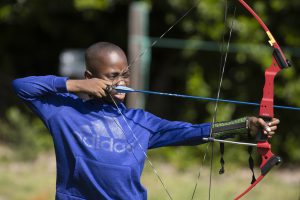By Daniel Gonzalez (UF/IFAS Extension Palm Beach County) and Chelsea Jones (UF/IFAS Extension Marion County)
We welcome you back to our mental health blogging series, where we discuss each of the 4-H Essential Elements and how to nurture such with youth, youth volunteers, and our fellow educators. In this blog, we are focusing on independence.
Independence can be defined as “the fact or state of being independent.” This leads to the question, what does it mean to be independent, and how does it relate to mental health? In the world of 4-H, independence is a common goal of many youth development activities. The goal is to nurture young people’s understanding of how to complete tasks and projects on their own, practicing how to make their own decisions and becoming independent thinkers.

One of Florida 4-H’s favorite activities is summer camps. These camps are enjoyed by hundreds of enthusiastic 4-H Members each summer. Although this is an exciting time, it also can be a time that leads to anxiety about leaving home and, for many youth, being “on their own” for the first time. With that said, there is research indicating the positive results of nurturing independence in youth safely:
- Youth who are engaged in learning through different environments are challenged to pursue their own learning (Samuel & Rose, 2011).
- Youth who are given the opportunity for self-determination can set their own goals, determine how they will get there, and who they want to become as an individual (Samuel & Rose, 2011).
- Youth who are given the opportunity to see themselves as active participants in the future can look ahead, vision, and see themselves doing great things, creating a positive outlook for the future (Samuel & Rose, 2011).
4-H strives to be the safe way for youth to grow in their independence. Volunteers and adults working with Florida 4-H youth undergo in-depth training and background investigations to ensure safety. They are managed by 4-H professionals to ensure best practices, policies, and procedures are utilized. The result is youth growth in life skills and participation in experiential learning activities they likely would not be a part of otherwise.

If you are interested in becoming a 4-H volunteer, contact your county extension office today. If interested in signing up youth for opportunities to grow in their independence this summer, check out the Florida 4-H Camping program, as well as other Florida 4-H events.
Did you find the above blog useful? Please let us know by completing this brief Qualtrics survey: http://bit.ly/3Jhowd3. This blog is a product of a larger mental health blogging series. If interested in receiving more information, please reach out to Daniel Gonzalez (dangon18@ufl.edu).
Stay tuned for our next blog in the series this coming August, discussing the essential element of belonging!
 3
3
